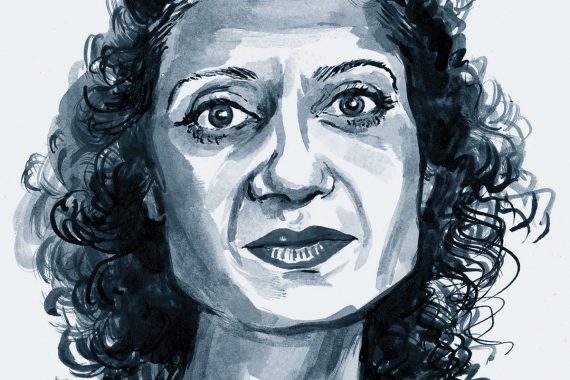What’s in a name?

When I was a young kid, I used to beg my dad to buy Robertson’s marmalade so we could collect enough tokens to receive a golliwog badge. As we were too poor to own any toys, this series of cute creatures became my early childhood friends. Then I started school and found myself being chased by a six-year-old boy – calling me a golliwog.
This was a period in the early 70s when overt mockery of ‘foreigners’ took place on TV, with shows such as Mind your Language and On the Buses. The irony is that these were my Dad’s favourite programmes when he was a bus conductor; he was just delighted shows were made about people who looked like him.
It was also acceptable to call minority ethnic people ‘coloured’, and mixed-race people ‘half caste’. I used the latter term for people I knew who had a white mother and a Pakistani father. Now I have my own mixed-heritage children, I realise how offensive it can sound to imply you are somehow half a person. I confess I’ve been educated in the process of writing this column, as I had liberally used the term ‘mixed race’ for my children. It seems even this can be misleading as it implies a pure race exists. After all, we’re all a product of mixed breeding if we go back far enough.
Confusingly, language etiquette varies across the pond. In the US, it is acceptable to refer to ‘people of colour’– not a million miles from ‘coloured’. However, use of the latter in this country can lead to online outrage and resignations. These sensitivities stem from a time in the 50s and 60s when pub doors and properties for rent would carry signs of ‘No Coloureds, no Blacks, no Irish’, as well as the faulty assumption that white people have no skin colour.
Gradually the race arena started to become more politicised and ‘black’ became a catch-all word adopted by everyone whose skin was any shade of brown. The word symbolised oppression, struggle and the discrimination we all endured – these experiences united us regardless of our skin colour. But some people were less enthusiastic and a wish to highlight differences between minority groups grew.
I first encountered the abbreviation BME at a CCG meeting, and I admit I had to google the term on my phone to understand what the manager meant. BME subsequently morphed into BAME, to acknowledge the Asians within the Black and Minority Ethnic groups. Another confession: I only found out the A stood not for ‘and’ but for ‘Asian’ during a recent Twitter conversation. All this time the term was acknowledging my own heritage, and I hadn’t even appreciated it.
But history has a way of repeating its offences and there will be holes in any term used to cover our infinite diversity. BAME itself is now considered both too homogenous and too divisive. We’re back to good old ‘ethnic minority’, which should be an all-encompassing term – were it not for the fact we can be in the majority in certain settings.
The message is – if you aren’t sure if a term is offensive, ask! And if you asked me what I’d like to be called, I’d say ‘exotic’. But then, I am a shallow girl from Essex!
Dr Shaba Nabi is a GP trainer in Bristol. Read more of Dr Nabi’s blogs online at pulsetoday.co.uk/nabi
This piece originally appeared in the May print issue of Pulse
Related Articles
READERS' COMMENTS [3]
Please note, only GPs are permitted to add comments to articles










Comically, ethnic minority is actually global majority. Sertraline and turmeric, same same but different. Ultimately, just a rock spinning in the Milky Way Galaxy heading towards Andromeda. If only some knew what Sagittarius A was.
How do you think us oldies feel? Having lived through years of being told what is corrrect then it’s not. I haven’t a clue what terms to use for a non Caucasian now – and I’m sure that’s now wrong. I’m described as ‘white’ but no way am I actually that colour. We need daily public updates on what terms are ‘correct’ and what are not.
Lovely piece Shaba- really balanced view. I hope we can have a more grown up tolerant view of race and ethnicity. I’m not entirely comfortable with the current UK notion that race or ethnicity is binary white / BAME, because it implies that people need to be lumped into groups and in some way treated differently, whereas as Shaba says we are all culturally diverse if we go back far enough.